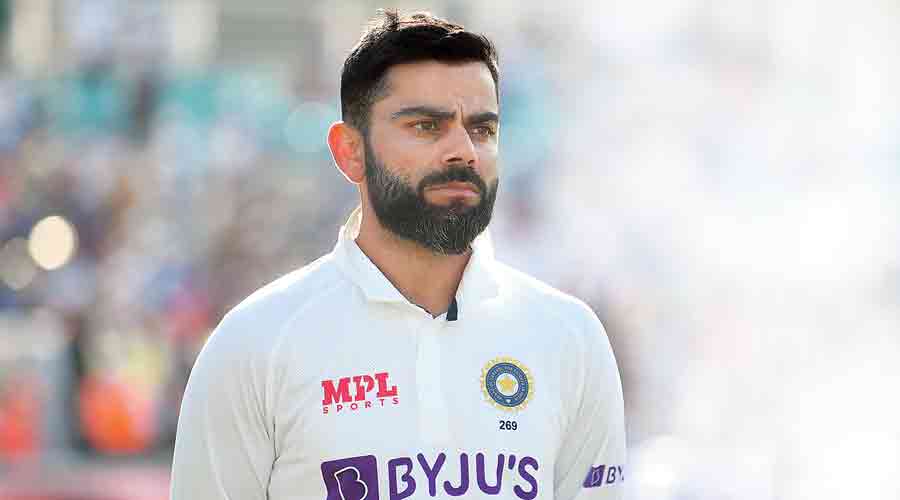England cricket writers and former players have mostly kind things to say about Virat Kohli but for many of them the big question is whether Joe Root will also stand down as Test captain after his team’s 4-0 Ashes humiliation in Australia.
For example, former England skipper Sir Alastair Cook wrote in The Sunday Times: “In case you missed it, Virat Kohli announced that, after a series defeat in South Africa, he was standing down as India Test captain.”
“I wonder what went through Joe Root’s mind when he learnt of this,” added Cook, who led England in 50 Tests (and 69 ODIs) and was succeeded by Root as Test captain in 2017, having been his vice-captain since 2015.
“I wonder what will be going through his mind in the next few weeks,” continued Cook. “He hasn’t been captain as long as Kohli but he is in a similar position to the one I was in when I resigned in 2016: a captain for more than four years who has just seen his team well beaten on a gruelling tour.
“Joe has said he wants to carry on…but will it be his call?”
Another former England skipper, Michael Atherton, who captained his country in 54 Tests from 1993 to 2001 and is now cricket correspondent of The Times, stated: “Root has been a good England captain, and has always carried himself superbly and is an incredible ambassador for the sport, but having done the job for five years and having had three cracks at the Ashes, including two awful campaigns in Australia, it is time for someone else to have a go.”
Kohli has long been admired in England as a batsman of the highest class but there have been reservations about his style of leadership.
Wisden, which publishes the cricketer’s Bible, noted: “Plenty of praise poured in on social media for Virat Kohli after the India batter announced his decision to step down as Test captain.”
It said that “legendary figures of the game weighed in after Kohli revealed his decision on Saturday”, and reported the tweet from the West Indian great, Sir Vivian Richards, who took over as skipper from Clive Lloyd in 1980 and captained side to 27 wins in 50 Tests between 1980 and 1991.
Richards offered his congratulations to Kohli “on a stunning run as the Indian captain. You can be very proud of what you have achieved so far, and for sure, your name will be up there among the best leaders in world cricket”.
In the Daily Telegraph, there was a serious attempt at analysing Kohli’s strengths and weaknesses by cricket writer Tim Wigmore: “The notion of a captain embodying their team is often overblown. But it was seldom truer than with Virat Kohli and India. Kohli — voracious in his ambitions and work ethic, and brash with it — seemed in keeping with the spirit of a modern India, who would be second to no one.
“Kohli was at the heart of this brilliant era for Indian Test cricket. The most obvious way was in his runs. Kohli assumed the captaincy aged 26, coinciding with the traditional peak age of batsmen. Scoring twin centuries in his opening Test as captain, as stand-in at Adelaide, showed that the captaincy fitted with his batting as neatly as hand in a glove. His average of 41.1 in the ranks soars to 54.8 as captain, even if the real downward trend in his batting is inescapable.
“As a pure captain, Kohli is hard to evaluate. As a tactician, he could be a little impetuous, and prone to over-reacting — shuffling his bowlers, or his fields, too hurriedly. This eagerness could also manifest itself in an ugly tendency to harangue umpires, including in his last series in South Africa.
“Rather than on the pitch, Kohli’s greatest impact as India captain was off-it. India’s greatest batsmen have often been mediocre fielders; Sachin Tendulkar, for instance, was curiously anonymous in the field. But, through his ferocious commitment to training and fitness Kohli has been at the vanguard of changing India into one of the best fielding sides in the world.”
Wigmore said that “the abiding hallmark of the Kohli era will be of victories in foreign lands. Until 2018, no Asian side had ever won a Test series in Australia; Kohli’s India managed the trick twice in three years, even if he was absent on paternity leave — itself, evidence both of Kohli’s power and modern thinking — for the last three Tests in 2020/21.
“And yet a man of Kohli’s ambitions will know that, for all the achievements of his era, with India’s resources — above all an attack with the pace and spin to thrive in all-conditions — there is also a sense that his side could have accomplished even more.
“While his abrasive style meant Kohli’s leadership was respected, but not loved, beyond India, the very seriousness with which Kohli approached Test cricket — borne of his respect for its multifarious challenges and sense of history — has been a boon for the format. Without Kohli as Test captain, and with the Indian Premier League expanded to 10 sides, 2022 already looms as bringing unwanted new challenges for the five-day game.”
In the Mail on Sunday, cricket correspondent Richard Gibson summed up: “For all his histrionics, Test cricket owes Kohli its gratitude. His belief in its pre-eminence has influenced world cricket’s most powerful country and its vast audience at a time when the shortest formats have dominated.”










